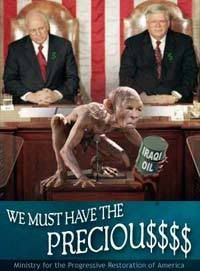![]()
My good friend Dylan Grice takes a very interesting tack in the latest issue of his Edelweiss Journal, today’s Outside the Box. Rather than attacking our macroeconomic problems directly with economic tools, he approaches them from the point of view of what he calls a “subtle but significant devaluation of language.” Now, you might think that the words we use to describe and understand the economy are not in themselves very powerful economic determinants, but Dylan lays out a convincing case to the contrary.
Dylan has fun with a Google app called Ngram Viewer, which allows users to search for the occurrence of words or phrases (or n-grams, which are combinations of letters) in 5.2 million books published between 1500 and 2008, containing 500 billion words, in American English, British English, French, German, Spanish, Russian, and Chinese.
Using Ngram, Dylan and colleagues have detected an exponential increase in the past few decades of such phrases as economic crisis, macroeconomic stability, policy intervention, financial engineering, and wealth management, and in such words as leveraged, arbitrage, risk, and growth. Use of the word financial overtook industrial shortly after 1980, he notes, and now far exceeds it. Likewise, spending now outstrips saving.
OK, so there’s a lot of funny money floating around these days, and we like to yak about it. But does that mean our language is influencing our economic outcomes? It’s a subtle but powerful process, Dylan says. Most of us appreciate that language shapes our ability to formulate, recall, and modulate the concepts that we then implement as world-changing actions; so language really is fundamental. And, Dylan asserts, when we vastly inflate key terms that we use in describing – and in attempting to manage – the economy, we create the dangerous illusion that we are all-powerful.
Dylan sets us straight in his opening paragraph:
Regular readers of our irregular publication will be aware of our thoughts on inflation, but for those who are not we would summarize them thus: inflation is not measurable. We can summarize our views on money with similar succinctness: it is poorly understood. And as for the economy, we know only this: it is a complex system. From these observations can be derived a straightforward corollary on economic policy makers: trying to control a variable you can’t measure (inflation) with a tool you don’t fully understand (money) in a complex system with hidden, unobservable and non-linear interrelationships (the economy) is a guaranteed way to ensure that most things which happen weren’t supposed to happen.
And in his closing paragraph he sums things up more succinctly and pithily than I ever could:
Today’s language of inflation embeds so many of these false ideas that the full rottenness of what passes for financial thinking today is obscured.
I wrote the following note to Dylan upon reading this piece over lunch the other day.
Dylan,
This reads so pure and profound as to make me weep, on one hand for the pleasure of reading your prose and on the other hand for not having written it myself – or maybe more precisely, for not having the skill to write with such beautiful style and clarity. Those sitting around me here at lunch must wonder at my composure and beatitude as I ignore my sushi and pour over your latest. This may be your finest composition; it’s at least the best thing of yours I have read. And with such a body of impressive work, that is saying something.
This is a briefer and far more eloquent statement of the driver behind Code Red, that central banks are indeed steering us ever closer to a “monetary trap,” an alley, if you will, in which we are very likely to be mugged. This way be dragons.
I believe you will enjoy this piece. Incidentally, I notice that some of Dylan’s Ngram curves that were trying to go asymptotic (straight up) have started to roll over since the Great Recession hit. I do wonder what that means.
Code Red made the Wall Street Journal best-seller list this weekend. Thanks to those of you who have bought the book and made that happen. The reviews are quite positive so far. Fixed-income maven Richard Lehman over at Forbes wrote a very nice piece about Code Red this weekend. I am very pleased that he spoke so well of it:
If you read only one book on finance this year, read Code Red: How To Protect Your Savings From the Coming Crisis by John Maudlin and Jonathan Tepper. It is a recounting of current Federal Reserve Bank’s “Code Red” policies for dealing with its mandate of promoting full employment while maintaining financial stability. The Code Red moniker is intended to draw attention to the unprecedented nature of those policies and the dangers we face when they are finally undone.
He goes on to say,
The book finishes with the most important chapters, what you can do to protect yourself from the almost certain negative fallout these policies will produce. This section alone makes the book a must read…. The authors see the end of a long secular bear market, but on the brink of a new secular bull market. Despite their dour outlook for the short term, they are basically bullish on America.
“But,” he concludes, “No book review is considered complete without saying something negative; so, I think they should have titled it Code Blue.” I’ll accept that, Richard.
I am off to NYC early tomorrow morning to be at the NASDAQ for the closing-bell ceremony, to celebrate the launch of a new ETF called ROBO, focused on robotics, automation, and 3-D printing. Then I’ll be on Bloomberg radio from 8-9 with Tom Keene and on other media throughout the day. I’ll hang around for the evening to be with my old friend Steve Forbes for an interview Thursday morning before heading back to Dallas to see what progress, or lack thereof, has been made on the new apartment.
Finally, my good friend Reid Walker launched an organization called Capital for Kids that raises money from the Dallas investment community (and their clients!) in order to help kids in all manner of activities. They have their big annual soiree Thursday, November 21 at the F.I.G. here in Dallas. Join me and several hundred fun people to help kids who need it. And bring your checkbook. The silent auction is loaded with cool items. Click on the link and look for me when you get there!
Your thinking about how we use words analyst,
John Mauldin, Editor
Outside the Box[email protected]
The Language of Inflation
By Dylan Grice
Edelweiss Journal, No. 14, November 2013
Regular readers of our irregular publication will be aware of our thoughts on inflation, but for those who are not we would summarize them thus: inflation is not measurable. We can summarize our views on money with similar succinctness: it is poorly understood. And as for the economy, we know only this: it is a complex system. From these observations can be derived a straightforward corollary on economic policy makers: trying to control a variable you can’t measure (inflation) with a tool you don’t fully understand (money) in a complex system with hidden, unobservable and non-linear interrelationships (the economy) is a guaranteed way to ensure that most things which happen weren’t supposed to happen.
One such unintended consequence of the past three decades’ economic experiments with “inflation” targeting has been the unprecedented inflation of credit which today leaves the world burdened with debt as it has never been burdened before. In Issue 12 we wrote about another unintended consequence of this monetary experiment, a redistribution of wealth from the poor to the rich and, relatedly, a growing distrust both within countries and between them. Since money is based on trust, we concluded, devaluing money devalues trust.
Now, with the help of Google’s fabulous Ngram Viewer (which allows users to search word usage in five million digitized books published since 1600) we’ve recently stumbled upon another possibility, which is that the past three decades’ hidden devaluation of money has caused a subtle but significant devaluation of language too.
This might sound abstract. But language is the machinery with which we conceptualize the world around us. Devaluing language is tantamount to devaluing our ability to think and to understand. Inflation, whether credit inflation or otherwise, messes things up because it sends false signals. For the ordinary steward of capital in such an environment the near impossible task of judging what is real from what is not is difficult enough. But what chance does he have if in addition, his linguistic software has coding errors to which he is oblivious? This is a question which is perplexing us here at Edelweiss and what follows is an exploration of some of the issues as best we can untangle them.
We start our journey into the financial imagination at the beginning, by tracing an important idea which has had a profound effect, namely that society and the economy are things to be manipulated by expert policy makers. As Taleb opines in his wonderful book Antifragile:
Modernity is not just the postmedieval, postagrarian, and postfeudal historical period as defined in sociology textbooks. It is rather the spirit of an age marked by rationalization (naive rationalization), the idea that society is understandable, hence must be designed, by humans. With it was born statistical theory, hence the beastly bell curve. So was linear science. So was the notion of “efficiency”—or optimization.
Supporting Taleb’s idea, the following chart shows how the word “optimal” has steadily gained prominence in the 20th century.

As the Taleb quote alludes to, much of today’s pseudo-science was facilitated by a hijacking of the statistical bell curve distribution, the growing psychic predominance of which can be seen here too.

Meanwhile, the growth in what is quite a modern idea of a controllable society can be seen in the following chart.

This new interventionist idea was brought into the realm of economics through the Trojan horse of macroeconomic theory and, in particular, its defining metaphor that the economy is basically an engine. Originally, this metaphor gave economists an excuse to use the same mathematics physicists had used with such great success in the 19th century. The hope was that such tools would afford them similar acclaim. But by the time of the Great Depression Keynes was explaining the slump as being somewhat akin to failure in a car’s electrical system. More recently, Nobel Prize winning clever-clogs Paul Krugman updated the metaphor by describing the current malaise as “magneto trouble.”
Today, the metaphor gives another kind of comfort. One that allows economists to pretend that like an engine, the economy is something that a well-trained expert, perhaps with a PhD from Princeton, should be in control of, and “do things to.” They can optimize it, fine-tune it, or manipulate it in some other way so as to achieve the outcomes most beneficial to “society.” Such experts think they know how to “drive” the economy the way a well-talented astronaut might fly a space shuttle. You’ve probably heard them talk about the economy reaching “escape velocity” or being stuck at “stall speed.” Now you know where they get it from.
They see their job as to constantly monitor the economic engine, check its gauges and dials, ensure its satisfactory performance while all the time standing ready to intervene should anything untoward happen. Thus, writing in January 2012 Larry Summers claimed that “government has no higher responsibility than ensuring economies have an adequate level of demand,” as though doing so were no more complicated than pouring out the correct measure of fuel into a tank. Should the economy ever become too hot and aggregate demand too high, the engineers are supposed to be able to spot this and put the brakes on before anything bad happens. In doing so, the idea is for economic fluctuations to be smoothed, macroeconomic stability achieved and an otherwise unruly world safely delivered into a “ruly” land of milk and honey. But this too is also a new obsession, only really gaining prominence since the 1980s.

The problem is that the metaphor is wrong, the conclusions derived from its use are misleading, and any attempt to achieve “macroeconomic stability” using its prescriptions is doomed to failure. Or at least, now that the results have come in over the past few decades, there isn’t much supporting evidence. If anything, the more obsessed that economists and policy makers became with stabilizing the economy, the less stable the economy became. Certainly the usage of the terms “economic crisis” and “financial crisis” displays a clear trend. (Note the time series ends in 2008; one would expect subsequent updates to show a renewed interest given what happened then and since).

Also, as a matter of empirical fact, the period during which the frequency of financial calamities has clustered is the very same period during which the idea of controlling through policy intervention became so fashionable. The chart below shows the incidence of financial crises as documented by Charles Kindleberger in his classic Manias, Crashes and Panics and updated for the various fiascos of the past decade. As can be seen, financial crises have noticeably clustered around the very period economists started playing God.

Volcker did a wonderful thing in taming CPI inflation in the early 1980s. But this was a watershed moment. His successors used the platform to launch their great experiment. In the name of macroeconomic stabilization they developed the habit of lowering interest rates at the first sighting of any clouds and keeping them low until the sky was blue again. While this all gave the illusion of relatively stable growth, artificially cheap money fueled a background credit inflation the likes of which has never been seen before. The chart below shows total US credit to GDP exploding from 1980 onwards, the great unintended consequence of attempts to stabilize and, of course, the source of the increased instability we have since borne witness to.

But there were other unintended consequences too. The artificial growth in debt saw an artificial growth in the size of the financial sector. And the financial sector did what the financial sector does. It financialized everything. Look at the explosion of these hitherto sparsely used words.


Ideas like these became glamorous because the people using them were becoming rich. In 1981 there was one financial professional in the top fifty names on the Forbes rich list. Thirty years later there were twelve. Cheap credit fueling higher assets benefitted those with access to credit, those who owned assets and the intermediaries who arranged the deals. Typically, such people were already rich. This in turn widened the great disparity between rich and poor we’ve discussed on these pages before, redistributing wealth from the asset poor to the asset rich. Or more simply just from the poor to the rich. Finance became king. Industry became an afterthought, something people “used to do.” Or at least, in the 1980s usage of the term “financial” overtook that of “industrial.”

But what does this all mean? Economists use the notion of “time preference” to describe an individual’s patience, or “discount rate.” The higher his time preference, the higher his discount rate, and someone with a high time preference would have a high preference to spend today compared to tomorrow. Something else which can be detected in these linguistic changes is an underlying change in time preferences. Remember the fundamentals of wealth accumulation: spend less than you earn. It’s no great secret. By working hard and saving you’re more likely to grow wealthy than if you don’t. Those with a lower time preference and a longer time horizon save more and are consequently rewarded more. Patience, thrift and hard work are all a part of the same package, and all serve in the natural process of capital formation and wealth accumulation.
But inflation inverts this calculus. With high price inflation of the traditional variety (i.e., an inflation of high street prices, or CPI), tomorrow’s money is worth less. Thrift makes no sense. Only idiots save. Patience is punished too, the more rational action being to pursue instant gratification by spending money while you can. (It has been well documented by Bernd Widdig, Gerald Feldman and others that during the Weimar hyperinflation, Berlin was simultaneously gripped by a wave of hedonism in which night bars, cabarets and strip clubs expanded as rapidly as the money supply.)
An inflation of credit is different in form but not substance. Why save up for something when you can cheaply borrow the money and have it today? Both types of inflation distort time preferences. Both types of inflation reduce the rewards of patience and thrift. Both types of inflation consequently distort the process through which wealth is created. The following chart reveals this inflated time preference through increased usage of the phrases “right now” and “fast money.”

To say, as almost everyone seems to, that there has been no inflation over the last thirty years and that there is no inflation today is a huge and misleading simplification in our view. What people mean, we think, is that there has been no inflation of the CPIs. Of course, this is true. But there has been a grotesque inflation of credit during this same period, and central banks are pulling out the stops to ensure that it continues. To do this they are engineering a staggering inflation of government bond prices which is inflating nearly all other asset prices. And all the while, there has been a commensurate inflation of economists’ confidence in themselves, of ordinary time preference and, as we shall now see, of expectations for the future. In other words, inflation is everywhere but the CPI.
But to understand the practical consequences it must be understood that language isn’t only a reflection of thought and action. It is a driver too. Language is our cognitive machinery; it shapes our ability to interpret, recall and process concepts. Lera Boroditsky, writing in Edge a few years ago, describes an Australian Aboriginal community whose language references direction in absolute terms, rather than the relative ones Indo-European languages use. Instead of telling someone to “watch out for the ditch ahead,” for example, someone from the tribe might warn a fellow member to “watch out for the ditch southeast.” Boroditsky writes that “the result is a profound difference in navigational ability and spatial knowledge” between the tribesmen and their spatially-relativist Indo-European speaking brethren.
One of the first studies to look into the effect of language on competence makes it even easier to understand why. Studies performed in 1953 on the ability of the indigenous Zuni tribes of New Mexico and Arizona found them to have difficulty retaining and recalling the colors yellow, orange and combinations thereof compared to AngloSaxons performing the same tests. As it happens, the Zuni have no separate words for the colors yellow and orange and therefore insufficient linguistic precision to process the difference. It is often said that sloppy language leads to sloppy thought. These studies and others like them conclude the same from the other direction: linguistic precision leads to cognitive precision. If distinct concepts are poorly defined they will be poorly understood.
It turns out that many of the terms we have long suspected of being hollow and gimmicky are in fact products of this era of financialization, and have only recently gained prominence in usage. As a first example, the following chart shows the Ngram for “wealth management.” It begs several questions. Like, was no one wealthy before 1980? Was there no “wealth” to be managed before then? Have serial asset price inflations and easy credit availability distorted what people understand as “wealth”? Or is it merely that the inflation of all things financial has fostered the creation an entirely new class of professional parasites called “wealth managers”?!

We don’t know. But we attended a lunch recently in which one such “wealth manager” was promoting his services to those around the table. An Italian gentleman claimed to be relieved to have finally found someone who could help him. “At last!” He gasped after the banker’s pitch, “I could really use some help managing my family’s wealth. We own vineyards and a processing plant in Italy, some land and a broiler farm in Spain, some real estate scattered around Europe and the Americas… We are fortunate indeed to have such wealth, but managing it all is increasingly challenging. Can you help?”
The poor banker looked forlorn. Of course, he didn’t mean that kind of wealth, the old-fashioned, productive kind of stuff. He meant the modern, papery, electronic kind. The stuff that blinks at you all day from a screen. Green on an “up” day, red on a “down”… He meant the kind of stuff you can buy and sell. He meant liquidity, we think. His pitch was for the management of the attendees’ “liquid” wealth, presumably because he wanted other people’s money to play with. (We have little doubt our Italian friend would have felt poorer had he sold up his estate and transferred the proceeds to the banker.)
Of course liquidity is an important component of wealth. But liquidity is not wealth. It’s needed to pay the bills that keep the lights on, the house running, the kids at school, provide for unforeseen events and so on. But why does the whole thing need to be liquid? A completely liquid portfolio of investments is important only for those who are intent on trading, and who might need to quickly exit their trades. Such activity may be the niche of a few financial market traders and talented speculators, but of the many who try to build or protect wealth using such methods few succeed. Why should it be so crucial to your average “wealth manager”? What has such activity got to do with the management of real wealth? And anyway, how is someone as confused by the difference between liquidity and wealth as they are between trading and investing supposed to manage anyone’s wealth, exactly? The explosion of wealth managers has seen a commensurate increase in the fetish for things which are liquid, a contrasting and relatively new fear of things which are illiquid.

Another linguistic distortion which has arisen during this age of financialization can be seen in the notion of “risk.” Indeed, the ngram for “risk management” looks similar to that of “wealth management” and again we ask ourselves similar questions. Was there no “risk” to be managed prior to 1980? Has the nature of “risk” changed since then? Or has the conceptualization and therefore understanding of risk changed during this time?

We suspect the latter. Within the space of a generation, bankers have become obsessed with “value-at-risk,” “risk-budgets” and more recently “risk-parity.” All such concepts use the volatility of market prices as the sole input into the calculation of “risk.” But price volatility is not risk and it is frankly dangerous to think that it is. There are so many different types of risks to consider in the practice of capital stewardship that we could write a book about them. Some are to be avoided without exception, others are to be embraced. But all require judgment because none are measurable. In the broadest sense possible, the greatest and most fundamental risk is the risk of not knowing what you’re doing. To the extent these “risk models” trick “risk managers” into thinking they do, they are dangerous because they blind users to the true nature of risk. The paradoxical outcome is that such risk managers are making the financial world far riskier than it would otherwise be.
Perhaps the most concerning distortion though is the obsession with “growth.” So deeply ingrained is it in our thinking today that one could be forgiven for thinking it has always been thus. But it is actually quite new. Increasingly, we see it as a part of the widespread though subtle inflation of expectations.

As can be seen, this growth fetish also seems to have developed during the credit inflation. Note also the relation to inflated time preferences. The fixation on growth can encourage behavior which may seem beneficial in the short term but is detrimental to the long term. The debt-overhung world we live in today is a very good macro-level example of the long-run damage this growth obsession can cause. But the corporate world is strewn with them. Most companies even tie executive compensation to implied or explicit EPS growth targets. These, not to mention the primacy of expected growth in the broader financial community, create a pressure on management to behave in a manner they otherwise might not. It also encourages executives to focus more on their stock price than on their business, which can be quite devastating.
For example, a survey of 169 CFOs polled for a recent study into earnings quality found that 20% “manage their earnings to misrepresent economic performance” in any given period. In their book Financial Shenanigans, Howard M. Schilit and Jeremy Perler write that “investors are beginning to harbor a troubling suspicion about corporate financial reporting: that management now plays tricks… Sadly, these suspicions are well founded.” Indeed, the bulk of the frauds analyzed in their book turn out to be perpetrated by executives fearful of disappointing the growth expectations they had previously fostered among their shareholders.

Don’t misunderstand us, there is nothing wrong with growth. We like growth and we like the companies we have ownership stakes in to grow. But we like growth as the outcome of an outstanding business process. An enterprise which is better at solving its customers’ problems than its competitors will soon find itself with more customers. Such a business will inevitably grow and this is a natural and good thing. But a company pursuing growth for the sake of it, or because Wall Street demands it, or because remuneration has been structured around it, is less likely to be concerned with the long-term health of the business. The pressure on them to engage in the financial shenanigans that Schilit and Perler document in their book will be greater, all else equal. So it is no longer necessary to merely keep a weather eye on the manner in which companies report their numbers. Today, stewards of capital must also make sure executives haven’t succumbed to the growth disease.
Recently, for example, we examined a company which is regionally dominant in an industry we are interested in and have some knowledge of. But its forty-six page investor roadshow presentation used the word “growth” forty-eight times. The company in the sector we already own a stake in mentioned growth in its forty-four page presentation only four times. Unsurprisingly, the company we investigated had twice as much debt as the one we already owned and had doubled its share count in the last fifteen years (ours had steadily and consistently shrunk its own). Unsurprisingly again, Mr. Market gave the growth-obsessed company a higher multiple than our one because Mr. Market loves growth. But to us, this tendency suggests a company’s clear willingness to either take or ignore risks with its health in the name of its cherished growth. We didn’t pursue our interest.
On a related note, we’ve recently come to the conclusion that there seems to be a widespread misunderstanding of what “capital” is. We happened to stumble across a fabulous book called Talent is Overrated (no sarcastic emails on why we were so attracted to such a title, please) written by the well-regarded Forbes journalist Geoff Colvin. To be clear upfront, is an excellent book which we learned a lot from. But consider the following extract (our emphasis):
For roughly five hundred years—from the explosion of commerce and wealth that accompanied the Renaissance until the late twentieth century—the scarce resource in business was financial capital. If you had it, you had the means to create more wealth, and if you didn’t, you didn’t. That world is now gone. Today, in a change that is historically quite sudden, financial capital is abundant. The scarce resource is no longer money…
“Financial capital” indeed. We found it striking that Mr. Colvin, a distinguished journalist of a distinguished business magazine should use the concepts of capital and credit completely interchangeably. Yet this is a fundamental error of thought. Capital is not money. One is scarce, the other is infinite. And we might not have thought anything of this sloppy language had we not been talking to an economist a few days earlier who feared for the future of euro. The situation remained grave, he said, and there was surely no alternative than for the ECB eventually to “print more capital”…
What he meant, we think, was printing more money. But it’s not what he said. He had confused money with capital as Mr. Colvin did in his book.

Like the Zuni tribes struggling to deal with the difference between yellow and orange without sufficient linguistic precision, we face the same problem in our financial system. As stock markets blink green on more QE supposedly making us all more wealthy, the developed world is saving less than it has at any time since WWII. And as central banks are conjuring up ever more liquidity, more thoughtful observers scratch their heads over the lack of collateral in the system. Of course, the problem is solvency, not liquidity. Capital comes from savings, and the policy of cheap credit with its inflation of time preference has encouraged spending, not saving. Scarce capital is growing ever scarcer.

One day, the price of capital will reflect its underlying scarcity, because one day it must. But in the meantime we think very carefully about the capital requirements of the businesses we own, growing increasingly wary of those which depend on artificially cheap “financial capital” for their survival. We note in passing that physical gold bullion is the oldest and purest capital there is…
What is the moral of this story for the steward of capital? Success in the long run requires that thought and action be fully independent from the false ideas of the herd. Yet today’s language of inflation embeds so many of these false ideas that the full rottenness of what passes for financial thinking today is obscured. One increasingly reads of capital stewards complaining that things seem more difficult today. We think it’s because they are. We are also increasingly mindful of conversations with friends, family and colleagues that reveal a widespread perception that something is very wrong, though people can’t quite put their finger on what it is. As we have just argued, we think the answer is that the inflation of credit has driven an inflation of asset prices, which has driven an inflation of future expectations, which has driven an inflation of time preference… and that while the consequences of these various inflations are profound, the new language of inflation which it has spawned is shallow. Therefore, not only is there insufficient capital to ensure future prosperity and insufficient realism to deal with the future this implies, there is insufficient linguistic precision for most people to articulate the problem let alone understand it. And when language itself becomes so grotesquely distorted, how does one go about substituting the customers’ unattainable hopes and expectations of never-ending growth with the need for principled and honest action?
Like Outside the Box?
Sign up today and get each new issue delivered free to your inbox.
It’s your opportunity to get the news John Mauldin thinks matters most to your finances.
© 2013 Mauldin Economics. All Rights Reserved.
Outside the Box is a free weekly economic e-letter by best-selling author and renowned financial expert, John Mauldin. You can learn more and get your free subscription by visiting www.MauldinEconomics.com.
Please write to [email protected] to inform us of any reproductions, including when and where copy will be reproduced. You must keep the letter intact, from introduction to disclaimers. If you would like to quote brief portions only, please reference www.MauldinEconomics.com.
To subscribe to John Mauldin’s e-letter, please click here: http://www.mauldineconomics.com/subscribe
To change your email address, please click here: http://www.mauldineconomics.com/change-address
Outside the Box and MauldinEconomics.com is not an offering for any investment. It represents only the opinions of John Mauldin and those that he interviews. Any views expressed are provided for information purposes only and should not be construed in any way as an offer, an endorsement, or inducement to invest and is not in any way a testimony of, or associated with, Mauldin’s other firms. John Mauldin is the Chairman of Mauldin Economics, LLC. He also is the President of Millennium Wave Advisors, LLC (MWA) which is an investment advisory firm registered with multiple states, President and registered representative of Millennium Wave Securities, LLC, (MWS) member FINRA, SIPC, through which securities may be offered . MWS is also a Commodity Pool Operator (CPO) and a Commodity Trading Advisor (CTA) registered with the CFTC, as well as an Introducing Broker (IB) and NFA Member. Millennium Wave Investments is a dba of MWA LLC and MWS LLC. This message may contain information that is confidential or privileged and is intended only for the individual or entity named above and does not constitute an offer for or advice about any alternative investment product. Such advice can only be made when accompanied by a prospectus or similar offering document. Past performance is not indicative of future performance. Please make sure to review important disclosures at the end of each article. Mauldin companies may have a marketing relationship with products and services mentioned in this letter for a fee.
Note: Joining The Mauldin Circle is not an offering for any investment. It represents only the opinions of John Mauldin and Millennium Wave Investments. It is intended solely for investors who have registered with Millennium Wave Investments and its partners at http://www.MauldinCircle.com (formerly AccreditedInvestor.ws) or directly related websites. The Mauldin Circle may send out material that is provided on a confidential basis, and subscribers to the Mauldin Circle are not to send this letter to anyone other than their professional investment counselors. Investors should discuss any investment with their personal investment counsel. You are advised to discuss with your financial advisers your investment options and whether any investment is suitable for your specific needs prior to making any investments. John Mauldin is the President of Millennium Wave Advisors, LLC (MWA), which is an investment advisory firm registered with multiple states. John Mauldin is a registered representative of Millennium Wave Securities, LLC, (MWS), an FINRA registered broker-dealer. MWS is also a Commodity Pool Operator (CPO) and a Commodity Trading Advisor (CTA) registered with the CFTC, as well as an Introducing Broker (IB). Millennium Wave Investments is a dba of MWA LLC and MWS LLC. Millennium Wave Investments cooperates in the consulting on and marketing of private and non-private investment offerings with other independent firms such as Altegris Investments; Capital Management Group; Absolute Return Partners, LLP; Fynn Capital; Nicola Wealth Management; and Plexus Asset Management. Investment offerings recommended by Mauldin may pay a portion of their fees to these independent firms, who will share 1/3 of those fees with MWS and thus with Mauldin. Any views expressed herein are provided for information purposes only and should not be construed in any way as an offer, an endorsement, or inducement to invest with any CTA, fund, or program mentioned here or elsewhere. Before seeking any advisor’s services or making an investment in a fund, investors must read and examine thoroughly the respective disclosure document or offering memorandum. Since these firms and Mauldin receive fees from the funds they recommend/market, they only recommend/market products with which they have been able to negotiate fee arrangements.
PAST RESULTS ARE NOT INDICATIVE OF FUTURE RESULTS. THERE IS RISK OF LOSS AS WELL AS THE OPPORTUNITY FOR GAIN WHEN INVESTING IN MANAGED FUNDS. WHEN CONSIDERING ALTERNATIVE INVESTMENTS, INCLUDING HEDGE FUNDS, YOU SHOULD CONSIDER VARIOUS RISKS INCLUDING THE FACT THAT SOME PRODUCTS: OFTEN ENGAGE IN LEVERAGING AND OTHER SPECULATIVE INVESTMENT PRACTICES THAT MAY INCREASE THE RISK OF INVESTMENT LOSS, CAN BE ILLIQUID, ARE NOT REQUIRED TO PROVIDE PERIODIC PRICING OR VALUATION INFORMATION TO INVESTORS, MAY INVOLVE COMPLEX TAX STRUCTURES AND DELAYS IN DISTRIBUTING IMPORTANT TAX INFORMATION, ARE NOT SUBJECT TO THE SAME REGULATORY REQUIREMENTS AS MUTUAL FUNDS, OFTEN CHARGE HIGH FEES, AND IN MANY CASES THE UNDERLYING INVESTMENTS ARE NOT TRANSPARENT AND ARE KNOWN ONLY TO THE INVESTMENT MANAGER. Alternative investment performance can be volatile. An investor could lose all or a substantial amount of his or her investment. Often, alternative investment fund and account managers have total trading authority over their funds or accounts; the use of a single advisor applying generally similar trading programs could mean lack of diversification and, consequently, higher risk. There is often no secondary market for an investor’s interest in alternative investments, and none is expected to develop.












































